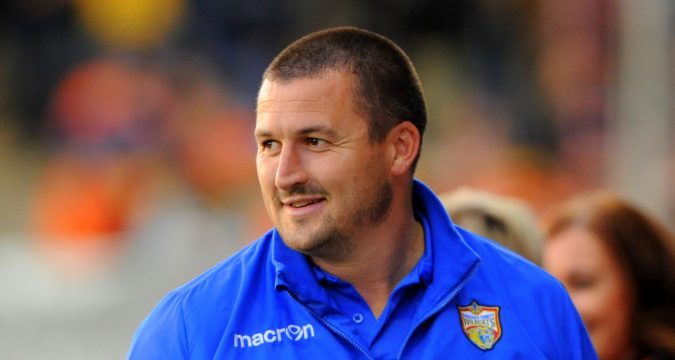
“I wouldn’t wish being a Wakefield fan on my worst enemy, lad.”
I’ve been to a lot of games, and a lot of grounds, throughout my career, but if there’s one quote which I’ll always remember, it’s that one above.
And it wasn’t necessarily the quote which struck a chord, more the context of it. It was an elderly gentleman outside Wakefield Trinity’s ground on the day of the Million Pound Game against Bradford who uttered those words to me when I asked how the nerves were. He claimed he’d been a Trinity fan for 50 years – but the last 20 in particular felt more like 100 years.

And who could blame him for thinking that? To say it’s been a lean couple of decades for Wakefield would be an understatement. Financial mis-management, battles against relegation and periods in administration; Wakefield Trinity are essentially the girl of your dreams who, on the day you take her to meet your parents, ditches you for your best friend. They are disappointment in a nutshell.
Or at least they were.
In the last couple of years at Wakefield, the tide has begun to turn. That they came so close to the lights – literally – going out may not have been a bad thing in hindsight. They scraped through that game against Bradford by the skin of their teeth: and you only have to look at what happened next at Odsal to realise just how close Wakefield were to disaster.
But in truth, the good work had started long before that. Chairman Michael Carter’s goal was to make Trinity sustainable and self-sufficient off the field. Slowly, the club erased all their existing debt to start each year with a clean slate. Yet something still felt missing. Sure, Brian Smith had kept the club up in 2015, but they needed more. They needed someone young, hungry and with a point to prove to head things up off the field.
The fact he was a boyhood Wakefield Trinity fan was a bonus.
Fast forward to the present day and, under Chris Chester, Wakefield, comfortably Super League’s lowest spenders, are fifth in the table with just nine games of the regular season remaining.
Chester left Hull KR at the start of last season under a bit of a cloud, with few, if any, tipping him to turn Wakefield around. But he hasn’t just got them winning games of rugby on a regular basis, he’s got them doing it with a fair bit of style. Anyone who doubted Chester was a Super League coach has been proven wrong, that much is a guarantee.

Okay, they’re not playing with the style of league leaders Castleford – but nobody is right now. It’s been easy for the Tigers to cast a shadow over the other 11 clubs this year, but Trinity are, when put into context, just as big a success story. Jacob Miller and David Fifita would not have re-signed at the old Wakefield: that old Trinity wouldn’t have been ambitious or promising enough to convince them to stay.
Trinity are also investing heavily in their Academy, with many fruits of their labour now forging a path in the first-team. Scratch beneath the surface of their on-field success, and Wakefield tick so many of the boxes.
How great it was therefore, to hear Chester declare in his post-match press conference at Magic Weekend that the top four is a realistic goal for a club who have spent the majority of the Super League era fighting at the wrong end of the table. As things stand, Chester’s men sit two points off fourth-placed Leeds: and suddenly, the whole city of Wakefield has a sporting team to be proud of. Here’s hoping Wakefield Council and the men tasked with building their new stadium realise that before it’s too late.
They’re the lowest spenders in Super League, but Wakefield Trinity are the competition’s biggest achievers. Michael Carter, Chris Chester and every single person associated with the club – from the kitman right through to captain Danny Kirmond – should be proud of how far they’ve got the club.
But if they glance across West Yorkshire and see what Castleford are doing, they should realise they could go a whole lot further together yet.
